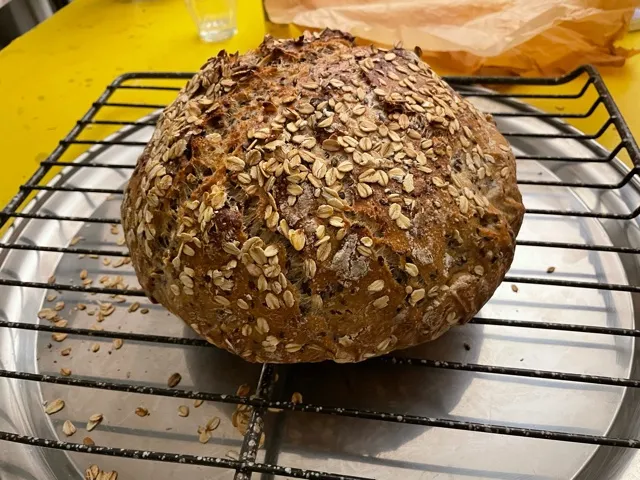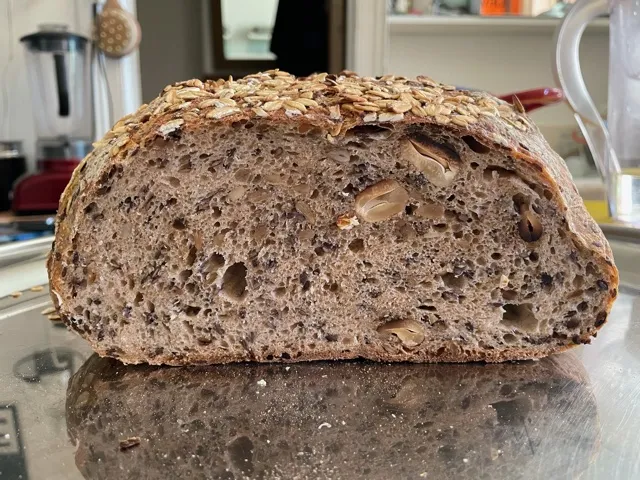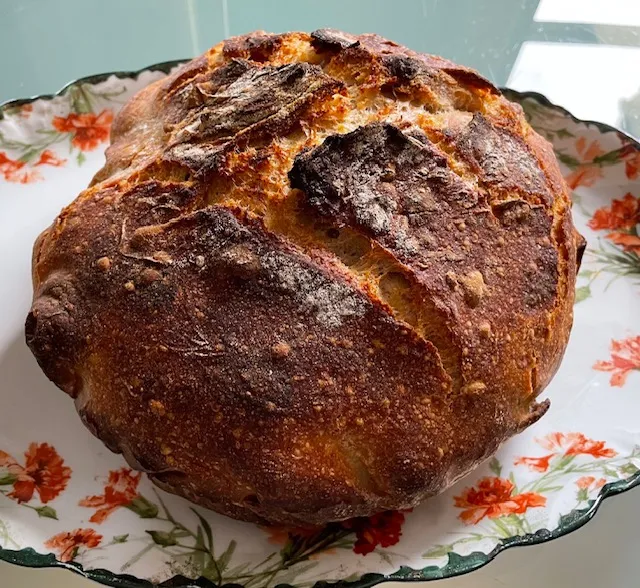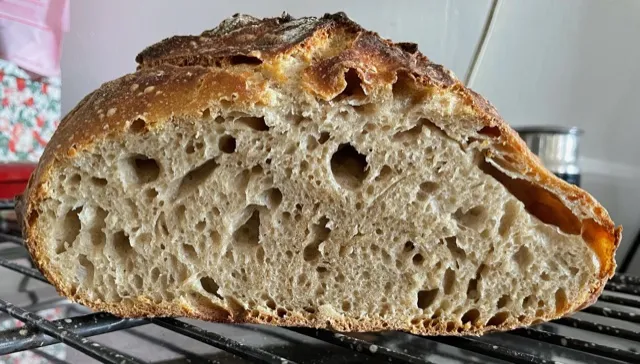With hot weather still gripping NYC, I've had to scramble how I bake. I've found myself fermenting levains overnight, mixing/kneading/folding for about an hour while it's still relatively cool in the early mornings, bulk fermenting in the fridge for 12 hours or so, shaping and doing short proofs at room temperature in the evenings and baking that same night, when the heat is halfway tolerable. The results have been decent -- two issues being fermentation is slightly hard to control and I need to figure out how to crisp my crusts a little (I'm using a dutch oven these days and am thinking of flipping the normal temps so I start at, say, 450F/230C with the cover on and increase the temp to 485F/250C once I remove the cover.)
What do folks think about this process? Is there anything intrinsically wrong with it? Is there anything you'd advise to watch out for or do better?
I posted my first bake using this approach here: https://www.thefreshloaf.com/node/70827/diagnosis-overproofed-without-looking-overproofed
Here are two other examples:




Thanks,
Rob
Don't know what the "flipping" is about and It's about time more emphasis was placed on a longer bulk rise with shorter final proofing. Nothing wrong about your method, very common in fact. Watch and record those fridge temps. I too like to bake when I can have the windows wide open or bake outside or on the roof at night. Many ways to go about it. Lovely loaves.
Right now I have to keep a watchful eye on my refrigerator temp as hubby read somewhere the electrical company wrote something about raising the temp to 8° C. I've noticed all my starters and fermentations speeded up in my normally 4°C fridge and mentioned to hubby the freezer part needs thawing out as the fridge can no longer maintain the cooler temp. That's when the confession came out and of course the discussion on what is better. A fridge that uses less energy or food that doesn't keep so long and gets discarded from spoilage?
Thanks, Mini. I guess I'm still too rooted to recipes, which almost always call for a relatively short bulk followed by a long cold proof. That being said, retarding the bulk fermentation means fewer folds that supposedly build structure. So far, happily, my loaves haven't minded.
You make a great point about refrigerator temperature. My fridge is -- believe it or not -- from 1949. It was here in my Brooklyn apartment (the gas oven dates to the 1950s) when I moved in. It's highly inefficient, I suppose (though I did install new door gaskets a few years back) but its antiquity has one advantage: it's quiet because it has no fan.